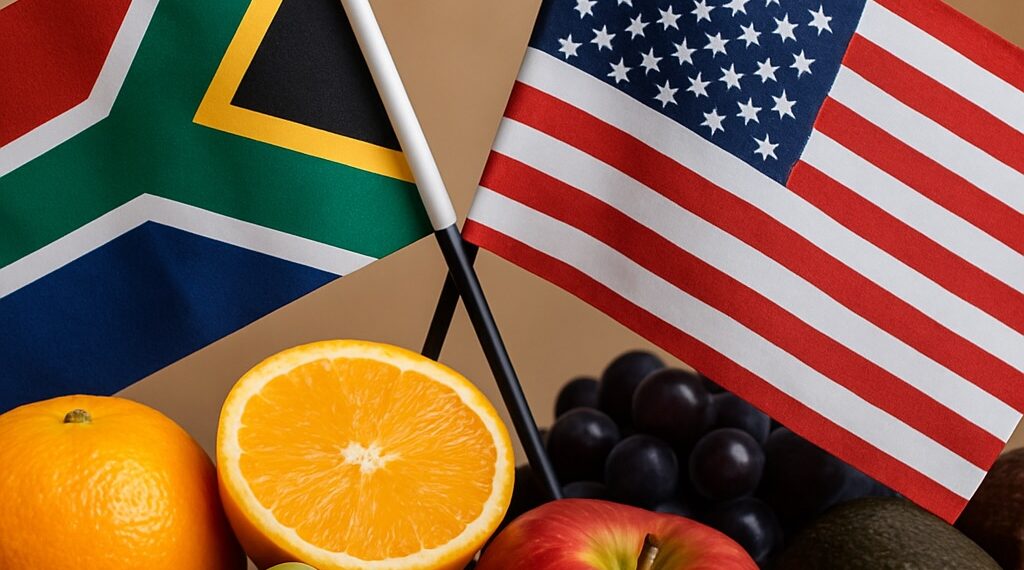South Africa’s agricultural sector faces a fresh challenge following the implementation of a 30% tariff on local agricultural exports to the United States, which came into effect on Thursday. According to the National Agricultural Marketing Council’s Bernard Manganyi, the new tariff is expected to put significant pressure on the competitiveness of South African produce in one of its key export markets. The increased cost burden is likely to impact high-value export categories such as citrus, wine, nuts, and certain fresh produce, making them less attractive to US buyers.
Also Read: Resilient Farming in Gairo, Morogoro: Harnessing Nature for Climate-Smart Agriculture
Manganyi explained that the tariff not only raises concerns about declining sales volumes but also threatens the profitability of local farmers, many of whom are already grappling with rising input costs, fluctuating exchange rates, and climate-related production risks. The added trade barrier could force exporters to explore alternative markets or renegotiate trade agreements to soften the blow. However, entering new markets is often a lengthy and costly process, requiring compliance with varying regulations and building fresh supply chain networks.

Industry experts warn that the ripple effects may extend beyond farms, impacting jobs in packaging, logistics, and port operations linked to agricultural exports. Small-scale and emerging farmers could be particularly vulnerable, as they lack the financial buffers to absorb prolonged price pressures. In the longer term, this development may trigger broader discussions on South Africa’s trade strategy, diversification of export destinations, and investment in value-addition to ensure resilience in the face of shifting global trade policies. For now, the sector watches closely, hoping for diplomatic engagement that could lead to a resolution and safeguard the livelihoods tied to one of South Africa’s most vital industries.